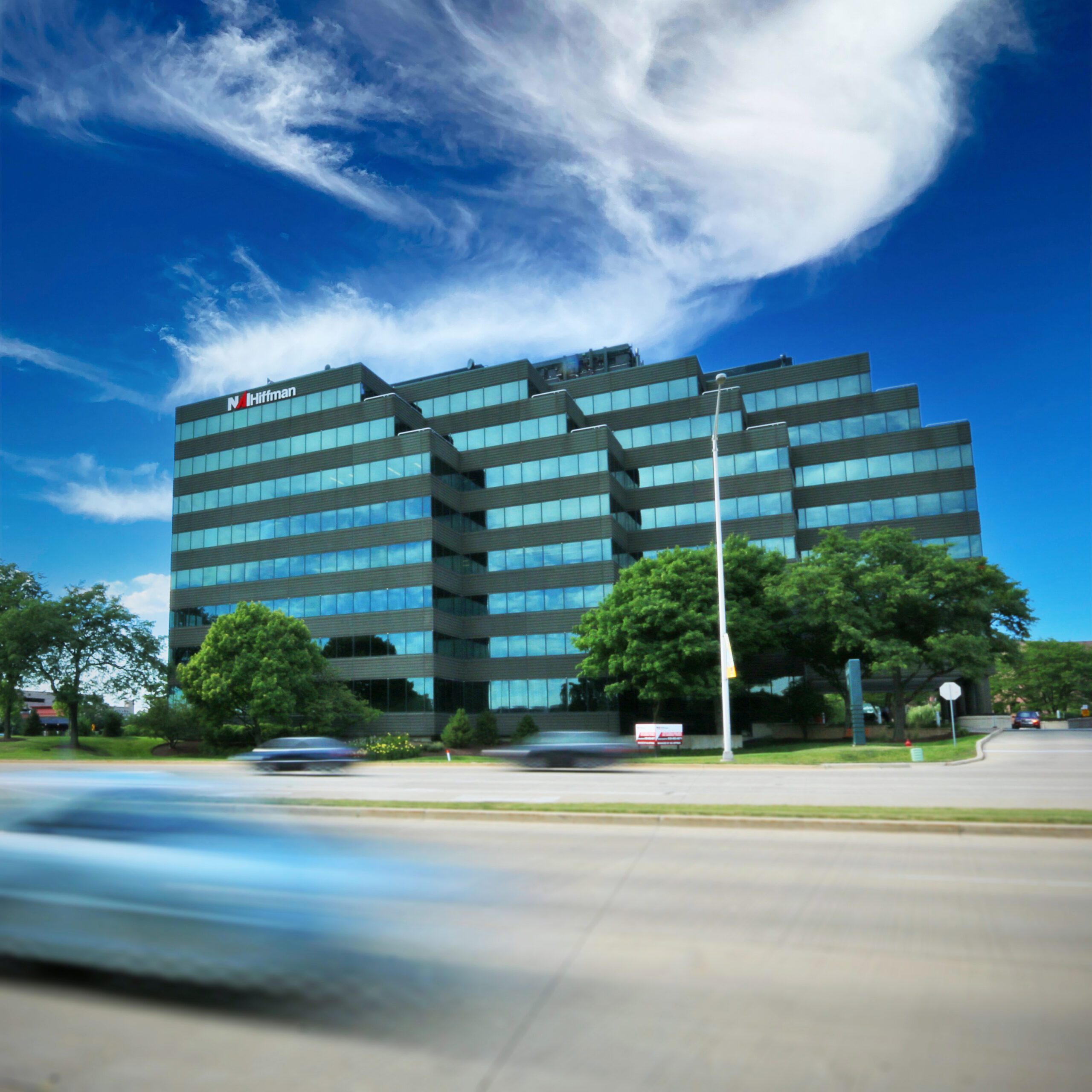November 2023
NAI Global September Logistics Journal

NAI Global September Logistics Journal
Trends and Insights on Industrial Real Estate by Experts in Multiple Markets
U.S. Industrial Markets
The recent industrial and logistics virtual meetings hosted by NAI Global and moderated by Steve Pastor with NAI James E. Hanson in Teterboro, New Jersey, covered some of the latest market activity in over a dozen primary U.S. industrial territories. Foremost, industrial real estate and logistics facilities are still the highest performing commercial real estate property types by asset class in the U.S. One reason for this is that despite the recovery of supply chains across many industries, the practice of ‘just in time inventory’ has been replaced by ‘just in case’ inventory management models. In other words, makers, assemblers and distributors are keeping more product in warehouses to satisfy demand if, when and where it surfaces.
During the September meeting, industrial specialists in numerous markets (though not all) said that after a markedly slow summer, activity has picked up and led to several large lease commitments as well as the removal of sublease space in select markets. Rental rates, meanwhile, are holding steady again in most markets, though it was said that there have been some concessions in Atlanta and other markets are seeing rents slide a bit in renewals.
Select Transactional Examples and other Highlights from the September Logistics Meeting
Amazon is back from a temporary hiatus in leasing activity, though not in the least comparable to its run in 2021 and 2022. The e-commerce and retail juggernaut leased a 1.3-million-square-foot facility with about 500 trailer parking spaces in Kingsland, an unincorporated area of Bergen County, NJ. The company also took down a 250,000-square-foot property on I-95 near Philadelphia, reportedly paying $15.50 a foot in rent – a new high watermark for that submarket.
In the Northeast, potential sublessors are removing space that they originally had for sublease in previously leased buildings. Companies such as Samsung, is removing a portion of a 925,000-squarefoot sublease from the market and Amazon, is moving back into a 435,000-square-foot facility in Elmwood Park, New Jersey.
In Nashville, Pepsi leased 400,000 square feet at Prologis’ South Park industrial complex, paying $8.95 per square feet with a $15 TI package.
The Houston market experienced a couple of mega-deals for the first time in 2023, with Distribution Alternatives taking 850,000 square-feet in Katy – which is west of the city, while another company signed an 800,000 square foot build to suit in the same submarket. Distribution Alternatives reportedly paid a 20% premium compared to the last mega deal signed in late 2022, signifying that rental rate increases have not stopped altogether, though they are moving more like an escalator, compared to the elevator they were over a year ago.
Onshoring is the theme for one of the largest industrial parks to come to Oklahoma in recent history. In Lawton, Oklahoma, Bartlesville-based Westwin Elements announced it would build a $730 million facility on 480 acres in the southwest part of the state. Its Lawton Industrial Park commitment is owned by Comanche County Industrial Authority and is projected to generate 2,000 jobs. From its website: “To strengthen America’s mineral independence, Westwin Elements is building the only major nickel and cobalt refinery in the United States. Westwin’s refinery complex will produce advanced metals for vital sectors like the defense industrial base, as well as the aerospace, transportation, and manufacturing industries.”
Most of the world’s cobalt comes from the Democratic Republic of Congo, while most of the refined nickel on the planet comes from China.
In Manteno, Illinois (about 50 miles south of Chicago), the state’s economic development department chalked up a big win by luring Gotion High-Tech’s U.S. EV battery manufacturing facility to the community, with the company planning to build a $2 billion facility. Its batteries are primarily intended for Volkswagen cars. Gotion is the fourth-largest EV manufacturer in China. The plant will drive demand for hundreds of thousands of square-feet of industrial facilities in the area, mostly as part of the battery maker’s supply chain. Gotion is expected to create about 2,600 jobs, many of them high paying. Even so, and as we have reported in previous publications, developers serving the industrial real estate market have slowed new project activity (from our July report, “developer pencils were down in terms of underwriting new deals”). New color to this observation was added during the September meeting when one broker mentioned that a certain developer’s main team was playing golf four days a week and “running some pretty good ping pong tournaments.”
In Atlanta, for example, approximately 32 million square-feet of industrial inventory is expected to be delivered this year, and based on recent sales and ground breakings, perhaps only 5 million square-feet will come to market in 2024.
In other recent industry news, logistics operators leased about 205 million square-feet of warehouse space in the second quarter. That was down from the 235 million-square feet leased in the same period a year earlier, but still significantly higher than 135 million-square feet in the second quarter of 2019, according to a Wall Street Journal article citing data from one of the publicly traded real estate companies.
The same company reported that manufacturers accounted for 8% of all warehouse leasing as of mid2023, up from 6.7% the year before.
Even with the relative slowdown this year, Prologis Chief Executive Hamid Moghadam said that so far, 2023 is one of the top five years in his 40-year real estate career. Not surprisingly, Moghadam described 2021 and 2022 as the best two years for industrial real estate during his time in the business. His company also reported that there has been a 27% decline in cargo shipped to the ports of Los Angeles and Long Beach over the past year, after a steady drop in international cargo traffic – the majority from Asia.
Adding to the shipping market woes are delays in the Panama Canal from serious drought that led authorities to cut ship crossings. Dozens of bulkers are backlogged on both entrances of the waterway, waiting for weeks to transit.
Bulkers mostly move grains from the U.S. and Brazil through the waterway.
London-based shipbroker Braemar said in a report in late August that all dry-bulk routes suffer daily losses as Chinese ports turn around ships “at a pace that current cargo volumes are unable to absorb.” That has led to a glut of ships in the Pacific, while few vessels were chartered in the Atlantic in the trailing days of August, according to Braemar.
Yet demand for new industrial space is not going away. Retailers such as Target, Sam’s Club and Amazon.com have been opening more logistics facilities this year, focused on speeding up e-commerce deliveries. Amazon asserted in August that its latest reorganization is primarily designed to double the number of its same-day delivery stations. The reorganization specifically calls for its national fulfillment network to shift to a series of regional hubs to serve its growing number of delivery stations.
Thought Leaders
- Steve Pastor, NAI James E. Hanson, Teterboro, NJ
- Adam Roth, SIOR, CCIM, NAI Hiffman, Chicago, IL
- Michael Stanzel, SIOR, NAI Robert Lynn, Dallas, TX
- Brian Armon, SIOR, CCIM, NAI Alliance, Reno, NV
- Hal Johnson, SCCED, NAI Earle Furman, Greenville, SC
- Lee Black, NAI Nashville, Nashville, TN
- Jeff Wilke, SIOR, LEED AP, NAI Latter & Blum, New Orleans, LA
- Joey Ferguson, NAI Swisher & Martin Realty, Laredo, TX
- Daniel Slote, NAI Platform, Albany, NY
- Ken Lundberg, SIOR, NAI James E. Hanson, Teterboro, NJ
- Jon Hickey, NAI Emory Hill New Castle, DE
- Mark Wardlaw, NAI Fortis Group, Louisville, KY
- Bryce Custer, SIOR, CCIM, NAI Spring, Ohio and W. Virginia
- Tyler Culberson, NAI Platform, Albany, NY
- Fred Meyer, SIOR, NAI Mertz, Mt. Laurel, NJ
- Ed Brown, SIOR, CCIM, NAI Tri Properties, Raleigh, NC
- Mike Chambers, NAI Brannen Goddard, Atlanta, GA
- Matt Osowski, SIOR, NAI Ohio Equities, Columbus, OH
- Mike Adams, NAI Summit, Allentown, PA
- Michael Royce, NAI KLNB, Tysons, VA
- Christian Davey, CCIM, SIOR, NAI Cressy, Indianapolis, IN
- Bob Sullivan, NAI Sullivan Group, Oklahoma City, OK
- Clark Everett, NAI Sullivan Group, Oklahoma, City, OK
- Steve Martens, CPM, CCIM, SIOR, NAI Martens, Wichita, KS
- Jim Caronna, SIOR, NAI KLNB, Baltimore, MD
- Jeff Licht, SIOR, NAI Mertz, Philadelphia, PA
- Nick Peterson, SIOR, NAI Robert Lynn, Houston, TX
Click here to download a digital copy.
About NAI Hiffman:
NAI Hiffman is one of the largest independent commercial real estate services firms in the US, with a primary focus on metropolitan Chicago, and part of the NAI Global network. We provide institutional and private leasing, property management, tenant representation, capital markets, project services, research, and marketing services for owners and occupiers of commercial real estate. To meet our clients’ growing needs outside of our exclusive NAI Hiffman territory, we launched Hiffman National, our dedicated property solutions division, which provides property management, project services, and property accounting services across the country. NAI Hiffman | Hiffman National is an award winning company headquartered in suburban Chicago, with more than 250 employees strategically located throughout North America.
About Hiffman National:
Hiffman National is one of the US’s largest independent commercial real estate property management firms, providing institutional and private clients exceptional customized solutions for property management, project management, property accounting, lease administration, marketing, and research. The firm’s comprehensive property management platform and attentive approach to service contribute to successful life-long relationships and client satisfaction. As a nationally bestowed Top Workplace, and recognized CRE award winner, Hiffman National is headquartered in suburban Chicago, with more than 250 employees nationally and an additional six hub locations and 25 satellite offices across North America.


